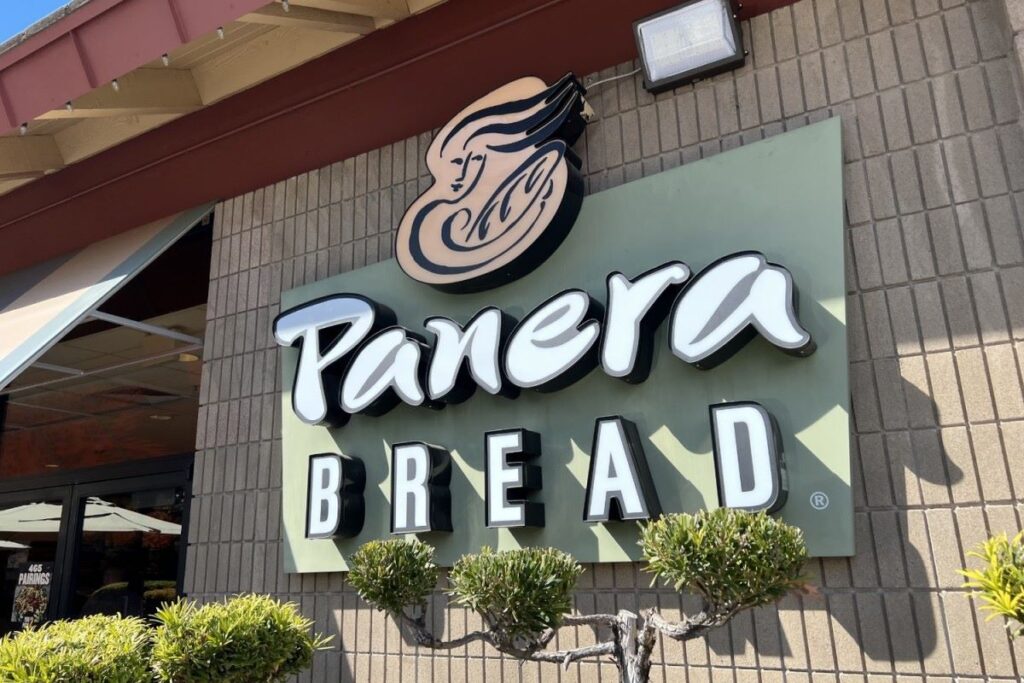
California Governor Gavin Newsom has approved a law that offers Panera Bread a reprieve from the newly implemented $20-an-hour minimum wage hike designated for fast food chains. This move follows revelations suggesting a correlation between the exemption and significant donations to Newsom’s political campaigns from the billionaire proprietor of multiple Panera Bread establishments.
The legislation, enacted in September by Newsom, a member of the Democratic Party, mandates an increase in the minimum wage for fast food workers from $16 to $20 an hour. However, an intriguing provision within the Fast Food Accountability and Standards Recovery Act (FAST Act) carves out an exemption for “chains that bake bread and sell it as a standalone item,” as reported by Bloomberg News.
The exemption primarily benefits Greg Flynn, the billionaire CEO of Flynn Restaurant Group, which oversees approximately two dozen Panera Bread locations across California. Notably, Flynn shares a high school alma mater with Governor Newsom and has previously engaged in business ventures involving the California governor.
Disclosure forms indicate Flynn’s acquisition of a Napa Valley resort managed by Newsom’s hospitality firm in 2014. Furthermore, Flynn has contributed significantly to Newsom’s political campaigns, with donations totaling at least $164,800.
While acknowledging his financial support for Newsom, Flynn denies any involvement in the formulation of the bread exemption. On the other hand, Newsom has described the exemption as a routine aspect of political negotiations, referring to it as “part of the sausage-making” in politics.
Meanwhile, industry stakeholders have expressed bewilderment and skepticism regarding the exemption, with Michelle Korsmo, head of the National Restaurant Association, highlighting the significance of interpersonal relationships in shaping legislative outcomes.
The governor’s office contends that the law resulted from extensive negotiations spanning two years and involving numerous stakeholders. Initially critical of the legislation, Flynn advocated behind the scenes for reconsidering Panera Bread’s classification as fast food, citing potential adverse effects on franchise owners.
The bread exemption ultimately found its way into the legislation following concessions made by the union advocating for the minimum wage hike.
POLL—Should the Government Increase Taxes on the Wealthy To Reduce Economic Inequality?
The recent warnings from Chipotle and McDonald’s’ executives about significant price hikes in California due to the minimum wage increase highlight the impact of rising labor costs on the restaurant industry.
Chipotle’s’ chief financial officer, Jack Hartung, emphasized the necessity of price increases to offset these higher expenses during an earnings call with investors. Similarly, McDonald’s’ CEO Chris Kempczinski echoed this sentiment, indicating that menu prices would need to rise to cope with increased labor costs in California.
McDonald’s’, for example, has raised prices across its menu, including charging $18 for a Big Mac meal. Such moves reflect the broader challenge thee industryfaces in balancing profitability with affordability for consumers.
ALSO READ: Elon Musk Pays for Canceled 4000 Mini Pies After Baker Called out Tesla on Social Media
In addition to labor-related cost pressures, Panera Bread’sB’recent class-action lawsuit settlement underscores the importance of transparency in pricing practices. The $2 million settlement addresses allegations of misleading customers about fees and menu prices for delivery orders, highlighting the need for clarity and honesty in consumer transactions.
Overall, these developments highlight the complex dynamics in the restaurant industry, where businesses must navigate labor costs, inflation, and consumer expectations while maintaining financial viability and regulatory compliance.
You Might Also Like:
Democratic Council Member Faces Recall Efforts in Crime-Ridden City as Residents Feel Unsafe
HBCU Administrative Suicide Raises Questions About Black Mental Health
Reporter Recounts Her Experience in Texas, Claims the State Policies Drive Her Out
Massachusetts Mom Slams School After Daughter’sDaughter’sullying in “Slave Au”tion”
Democra”s Set to Overturn Missouri State Law Banning Pregnant Women From Getting Divorced
